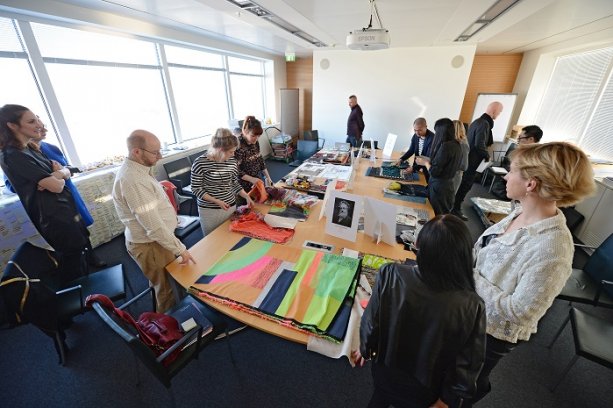
Joint study on high-performance SMC seeks partners
In the study, 200 decision makers from German hotels discuss details of procurement channels, trends, sources of inspiration and information, and buying criteria.

12th January 2016
Innovation in Textiles
|
Frankfurt
Textile furnishings are of great importance for 88% of hotels, according to the new Management Report entitled Textiles in Hotel Design: Hotel Furnishing Success Factors, published by Messe Frankfurt on the occasion of Heimtextil 2016.
The international trade fair for home and contract textiles that takes place from 12-15 January 2016 offers the world’s biggest range of furnishing textiles for hotels until Friday, organisers report.
In the study, 200 decision makers from German first-class hotels provide new insights into textile furnishing with details of procurement channels, trends, sources of inspiration and information, and buying criteria.
“Our new Management Report is the most comprehensive study on textile furnishings in hotels ever published,” said Olaf Schmidt, Vice President Textiles & Textile Technologies of Messe Frankfurt.
“The contract business is one of the most important themes at Heimtextil and hoteliers are one of the most important target groups. Every year, numerous decision makers from hotels and hotel chains come to Frankfurt to discover the latest textile-furnishing trends for hotels. As in the past, our Theme Park trend show will also offer inspiring ideas for the hotel business.”
Many guests rate the quality of their hotel room in accordance with the quality of the bed. Therefore, bed linen and mattresses are considered to be particularly important by 84 and 80% of hoteliers respectively. In the case of city hotels, the figure for mattresses rises to no less than 95%.
Bedding, which 69% rate as being important, is also a significant factor for textile furnishing. However, towels are perceived as being even more important (78%). Rounding off the top-five list of the most important product categories for the hotels polled is table linen with 61%. By contrast, curtains rank among the five most important products for country hotels (57%).
Generally speaking, two different departments are responsible for selecting textile furnishings in hotels: in 76% of cases, it is the purchasing and house-keeping departments (51%).
In individual hotels, however, many of which are owner run, the owner (or leaseholder) is the usual co-decision maker (67%) alongside the specialist purchasing department. Also, external experts, such as architects of interior-furnishing specialists, play a more important role for country hotels than for city hotels and hotel chains.
Quality is the most important criterion when it comes to purchasing for 93% of hotels. Ease of care and cleaning are highly rated by 82%. Only 49% regard the price as a decisive criterion and certainly less important than sustainability, which is mentioned as one of the five most important criteria by 53% of all respondents.
For country hotels, the long-term availability of products is a major factor (54%) compared to only 31% for all hotels. The question of country of origin is also an issue, especially for city hotels (42%).
Asked about anticipated trends, 42% of hoteliers said that quality was most important. Sustainability is a trend in the city (46%). 34% of respondents believe that sustainability will also play a leading role as a future trend.
Around 28% who see a greater design orientation as a trend spoke of concepts such as Vintage, Baroque, Laura Ashley and modern designs with clear lines and sharp edges. The fourth significant trend is towards product qualities, such as easy care and allergy friendliness.

Business intelligence for the fibre, textiles and apparel industries: technologies, innovations, markets, investments, trade policy, sourcing, strategy...
Find out more